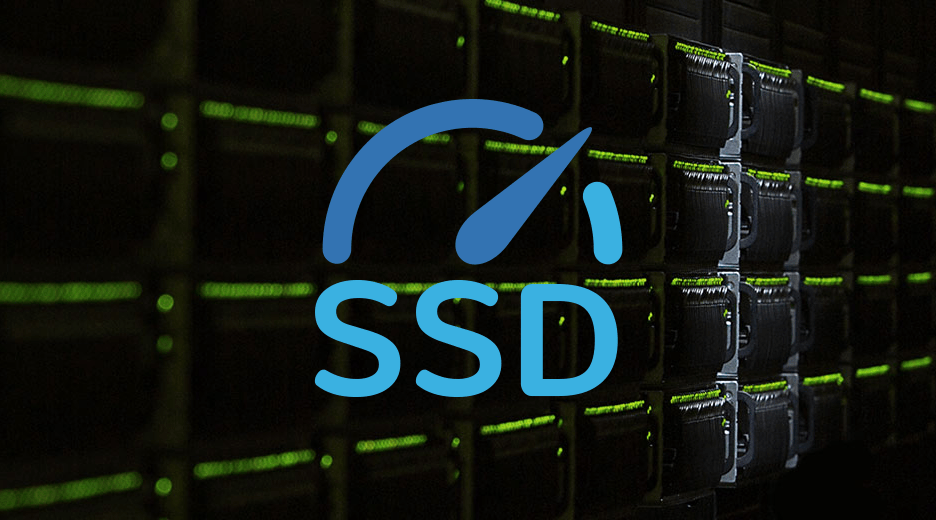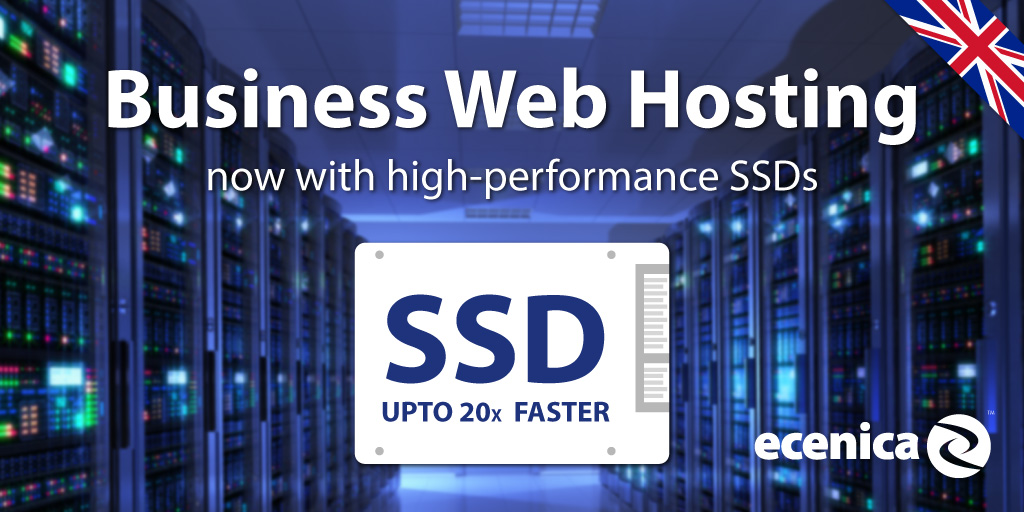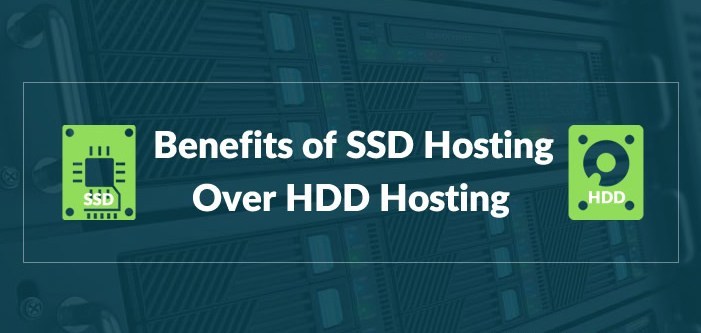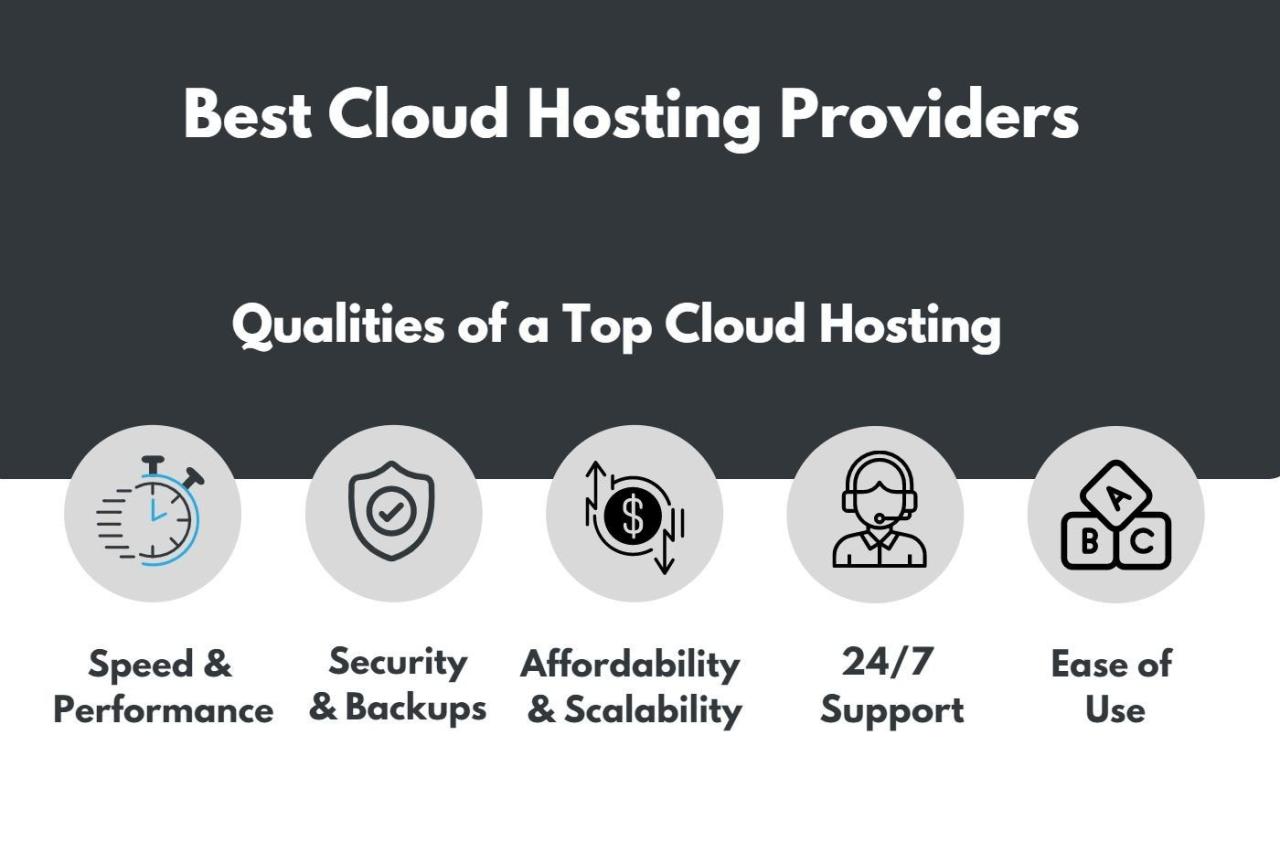SSD Hosting is a game-changer for website performance, offering lightning-fast loading times and enhanced security. Unlike traditional HDD hosting, SSD hosting utilizes solid-state drives (SSDs) to store and access data, resulting in significantly faster data transfer speeds and reduced latency. This translates to a smoother and more enjoyable user experience, ultimately leading to higher engagement and conversions.
The benefits of SSD hosting extend beyond just faster loading times. It also improves overall website performance, enabling resource-intensive websites and applications to run seamlessly. Additionally, SSDs are known for their durability and resistance to physical shock, making them a reliable choice for storing valuable data.
What is SSD Hosting?
SSD hosting is a type of web hosting that uses solid-state drives (SSDs) to store website files and data. SSDs are a newer technology than traditional hard disk drives (HDDs), and they offer several advantages for website hosting.
SSD Hosting vs. HDD Hosting
SSDs are significantly faster than HDDs, and this difference in speed translates into noticeable improvements for website performance. HDDs store data on spinning platters, while SSDs use flash memory chips. This means that SSDs can access data much faster, as they don’t need to physically move a read/write head to locate the data.
Advantages of SSD Hosting
SSDs offer several advantages over HDDs for website hosting:
- Faster loading times: SSDs can load websites much faster than HDDs, which improves user experience and reduces bounce rates.
- Improved performance: SSDs can handle more requests per second, which makes websites more responsive and improves overall performance.
- Enhanced security: SSDs are less susceptible to physical damage than HDDs, as they have no moving parts. This makes them a more secure option for storing sensitive data.
Websites that Benefit from SSD Hosting
Websites that require fast loading times, high performance, and reliable security benefit most from SSD hosting. These include:
- E-commerce websites: E-commerce websites need to be fast and reliable to ensure a smooth customer experience. SSD hosting can help to improve conversion rates and reduce cart abandonment.
- High-traffic websites: Websites with a large number of visitors need to be able to handle the traffic load. SSD hosting can help to ensure that websites remain responsive and perform well, even during peak hours.
- Websites with large databases: Websites with large databases, such as social media platforms and online forums, can benefit from the faster data access speeds provided by SSDs.
How SSD Hosting Works

SSD hosting leverages the speed and efficiency of solid-state drives (SSDs) to provide faster website loading times and improved performance compared to traditional hard disk drive (HDD) hosting. This enhanced performance is attributed to the unique way SSDs store and access data.
SSD Storage and Data Access
SSDs store data in flash memory chips, which are much faster than the spinning platters used in HDDs. This eliminates the need for mechanical components, enabling quicker data retrieval. Instead of physically moving a read/write head across a platter, SSDs use electronic circuits to access data directly from the flash memory.
IOPS and SSD Hosting
IOPS (Input/Output Operations Per Second) measures the number of read and write operations a storage device can perform per second. SSDs significantly outperform HDDs in terms of IOPS, as they can handle a higher volume of data requests concurrently. This translates to faster website loading times, particularly for dynamic content like databases and applications that require frequent data access.
Types of SSDs in Hosting
- SATA SSDs: SATA (Serial ATA) SSDs are a common type used in hosting, offering a balance of performance and affordability. They connect to the motherboard via a SATA interface, delivering decent speeds for most websites.
- NVMe SSDs: NVMe (Non-Volatile Memory express) SSDs utilize a faster interface, resulting in significantly higher speeds than SATA SSDs. This makes them ideal for demanding websites and applications requiring high IOPS and low latency.
- M.2 SSDs: M.2 SSDs are a newer form factor that offers faster speeds and smaller size compared to traditional SATA SSDs. They are typically used in high-performance servers and desktops, offering superior performance for demanding workloads.
Benefits of SSD Hosting

SSD hosting offers a plethora of advantages that can significantly enhance your website’s performance, user experience, and overall success. From blazing-fast loading speeds to improved security, SSD hosting provides a robust foundation for any website, regardless of its size or complexity.
Faster Loading Times
Faster loading times are crucial for a positive user experience and improved . Studies have shown that even a slight delay in loading time can lead to a significant drop in conversions and user engagement. SSDs, with their lightning-fast read and write speeds, drastically reduce page load times, ensuring visitors have a seamless browsing experience.
- Improved User Experience: Faster loading times result in a more enjoyable browsing experience for your visitors. They are less likely to abandon your website if it loads quickly, leading to increased engagement and time spent on your site.
- Enhanced : Search engines like Google prioritize websites with fast loading speeds. By optimizing your website’s loading time, you can improve your search engine rankings and attract more organic traffic.
Improved Performance for Resource-Intensive Websites
Websites that require significant processing power, such as those with large databases, multimedia content, or complex applications, can benefit greatly from SSD hosting. SSDs handle data requests with greater efficiency, leading to smoother operation and improved performance even under heavy load.
- Faster Data Access: SSDs access data much faster than traditional hard disk drives (HDDs), resulting in quicker response times for database queries and other resource-intensive tasks.
- Enhanced Website Stability: With SSDs, your website is less likely to experience slowdowns or crashes, even during peak traffic hours. This ensures a consistent and reliable user experience for all visitors.
Enhanced Security and Data Integrity
SSD hosting contributes to enhanced security and data integrity by providing a more stable and resilient platform for your website.
- Reduced Risk of Data Loss: SSDs are more resistant to physical shocks and vibrations than HDDs, making them less susceptible to data loss in the event of a hardware failure. They also have a lower rate of mechanical failure, further reducing the risk of data loss.
- Improved Data Integrity: SSDs have a higher tolerance for write cycles than HDDs, meaning they can withstand more data writes without degrading performance or compromising data integrity. This ensures your data remains accurate and reliable over time.
Choosing the Right SSD Hosting Plan
Choosing the right SSD hosting plan is crucial for ensuring your website performs optimally and meets your specific needs. The ideal plan will depend on factors such as your website’s traffic, resource requirements, and budget.
Factors to Consider When Choosing an SSD Hosting Plan
When selecting an SSD hosting plan, consider the following factors:
- Website Traffic: If your website receives a high volume of traffic, you’ll need a plan with ample bandwidth and storage space. Consider a plan with unlimited bandwidth if you anticipate significant traffic growth.
- Resource Requirements: The resources your website needs will depend on its complexity and functionality. For instance, a website with a large database or complex applications will require more processing power and memory.
- Budget: SSD hosting plans come in a wide range of prices. It’s essential to balance your budget with your website’s needs. Consider your website’s growth potential and choose a plan that offers room for expansion.
Comparing Different SSD Hosting Plans
Here’s a table comparing different SSD hosting plans based on storage space, bandwidth, and price:
| Plan Type | Storage Space | Bandwidth | Price |
|—|—|—|—|
| Shared Hosting | 10GB – 50GB | 100GB – 500GB | $5 – $15/month |
| VPS Hosting | 20GB – 100GB | 1TB – 5TB | $20 – $100/month |
| Dedicated Server | 1TB – 10TB | Unlimited | $100 – $500/month |
Tips for Identifying Reliable SSD Hosting Providers
When choosing an SSD hosting provider, consider the following tips:
- Read Reviews: Research potential providers and read reviews from other users. Look for reviews that provide detailed insights into the provider’s performance, customer support, and reliability.
- Check Uptime Guarantees: Look for providers that offer high uptime guarantees, typically 99.9% or higher. This ensures your website will be available to visitors most of the time.
- Look for Customer Support: Choose a provider that offers responsive and helpful customer support. Look for options like live chat, email, and phone support.
- Consider Security Features: Ensure the provider offers security features such as firewalls, malware protection, and SSL certificates to protect your website from cyber threats.
SSD Hosting vs. Other Hosting Types

Choosing the right hosting type is crucial for website performance, scalability, and budget. SSD hosting offers significant advantages in speed and reliability, but it’s important to understand how it compares to other options to determine the best fit for your specific needs.
Comparison of SSD Hosting with Other Hosting Types
This section provides a comparative analysis of SSD hosting with popular alternatives, highlighting their key differences and outlining scenarios where SSD hosting might be the most suitable choice.
- Shared Hosting: This entry-level option involves sharing server resources with multiple websites. It’s typically the most affordable but can lead to performance issues if other websites on the server experience heavy traffic. SSD hosting, with its faster storage and processing capabilities, can significantly outperform shared hosting, especially for websites with high traffic or resource-intensive applications.
- VPS Hosting: VPS (Virtual Private Server) offers a dedicated portion of a server’s resources, providing more control and better performance than shared hosting. While VPS hosting often incorporates SSD storage, it’s important to note that not all VPS plans utilize SSDs. In scenarios where high performance and dedicated resources are crucial, SSD hosting can provide a more cost-effective solution compared to a VPS plan without SSD storage.
- Cloud Hosting: Cloud hosting distributes website data and resources across multiple servers, offering scalability and redundancy. While many cloud hosting providers utilize SSD storage, the performance and cost can vary depending on the specific plan and provider. SSD hosting can be a viable alternative for smaller websites that require the benefits of SSD storage without the complexities and potentially higher cost of cloud hosting.
Scenarios Where SSD Hosting Is Suitable
SSD hosting proves advantageous in several scenarios, offering a balance of performance, reliability, and affordability:
- High-Traffic Websites: Websites experiencing high traffic volumes benefit significantly from SSD hosting’s speed and responsiveness, ensuring a smooth user experience and minimizing loading times. This is particularly important for e-commerce websites, where fast loading times can directly impact conversion rates.
- Resource-Intensive Applications: Websites running resource-intensive applications, such as databases or content management systems (CMS), can experience significant performance gains with SSD hosting. The faster read/write speeds of SSDs enable these applications to operate more efficiently, resulting in faster processing and improved user experience.
- Websites Requiring High Availability: SSD hosting provides a reliable platform for websites that require high availability. The faster data access and reduced latency of SSDs minimize downtime and ensure continuous website accessibility, even during peak traffic periods.
- Budget-Conscious Websites: While SSD hosting offers premium performance, it can also be a cost-effective option for websites that prioritize speed and reliability without exceeding budget constraints. Compared to VPS or cloud hosting plans with SSD storage, SSD hosting can offer a more affordable alternative for smaller websites with moderate traffic and resource requirements.
Trade-offs Between Hosting Types
Choosing the right hosting type involves considering trade-offs between performance, cost, and scalability:
| Hosting Type | Performance | Cost | Scalability |
|---|---|---|---|
| Shared Hosting | Lowest | Lowest | Limited |
| SSD Hosting | High | Moderate | Moderate |
| VPS Hosting | Higher | Higher | Higher |
| Cloud Hosting | Highest | Highest | Highest |
SSD hosting offers a compelling balance of performance, cost, and scalability, making it an attractive option for a wide range of websites.
SSD Hosting for Specific Use Cases
SSD hosting offers significant advantages for various website types, especially those demanding high performance and responsiveness. Let’s explore how SSD hosting can be tailored to specific website needs and the configurations that benefit the most.
E-commerce Platforms
E-commerce websites require fast loading times, seamless navigation, and secure transactions. SSD hosting excels in this domain, providing the speed and reliability necessary for a positive customer experience. Here’s why:
* Faster Page Load Times: SSDs deliver significantly faster data access compared to traditional HDDs, resulting in faster page load times for product pages, checkout processes, and other critical elements.
* Improved User Experience: Quick loading times and smooth navigation contribute to a better user experience, reducing bounce rates and encouraging conversions.
* Enhanced Security: SSD hosting typically comes with enhanced security features, protecting sensitive customer data and transactions.
Optimal SSD Hosting Configurations:
* Dedicated Server: For high-traffic e-commerce platforms, a dedicated server with SSD storage provides optimal performance and scalability.
* Managed Hosting: Managed hosting packages often include SSD storage and expert support, simplifying the management of complex e-commerce platforms.
Blogs
Blogs are often content-heavy websites with a focus on delivering engaging articles and multimedia. SSD hosting can enhance the blog experience by:
* Faster Content Delivery: SSD storage ensures quick loading times for blog posts, images, and videos, keeping visitors engaged.
* Improved Search Engine Optimization (): Faster page load times are a key factor in ranking, improving visibility and organic traffic.
* Enhanced User Experience: A smooth and responsive blog encourages visitors to explore more content and engage with the site.
Optimal SSD Hosting Configurations:
* Shared Hosting: Shared hosting with SSD storage provides a cost-effective solution for most blogs, offering a balance of performance and affordability.
* Cloud Hosting: Cloud hosting with SSD storage provides scalability and flexibility, allowing blogs to grow and handle traffic spikes.
Portfolio Websites
Portfolio websites showcase individual or company work, often featuring high-resolution images and videos. SSD hosting is ideal for delivering a visually stunning and responsive portfolio:
* Fast Image and Video Loading: SSDs significantly reduce the time it takes to load large images and videos, ensuring a smooth and engaging experience.
* Improved User Experience: Fast loading times and seamless navigation create a professional and polished impression on visitors.
* Enhanced : Faster page load times improve rankings, making the portfolio website more discoverable online.
Optimal SSD Hosting Configurations:
* VPS Hosting: A virtual private server (VPS) with SSD storage provides dedicated resources and performance, ideal for showcasing large, high-resolution portfolios.
* WordPress Hosting: Specialized WordPress hosting with SSD storage optimizes performance for WordPress-based portfolio websites, simplifying management and ensuring security.
Future Trends in SSD Hosting
The world of SSD technology is constantly evolving, and these advancements are directly impacting the future of web hosting. New innovations are emerging, promising even faster speeds, greater storage capacities, and enhanced reliability. These advancements will undoubtedly shape the landscape of web hosting in the coming years.
Advancements in SSD Technology, Ssd hosting
The continuous development of SSD technology is driving significant improvements in web hosting. One notable trend is the rise of NVMe SSDs, which offer significantly faster data transfer speeds compared to traditional SATA SSDs. NVMe SSDs utilize a PCIe interface, enabling them to communicate directly with the motherboard, bypassing the limitations of the SATA interface. This results in significantly reduced latency and improved overall performance. Another significant development is the increasing use of 3D NAND flash memory technology in SSDs. 3D NAND technology allows for higher storage densities, enabling manufacturers to create SSDs with larger capacities while maintaining cost-effectiveness. These advancements in SSD technology will lead to more powerful and efficient hosting solutions.
Emerging Trends in SSD Hosting
Several emerging trends are shaping the future of SSD hosting. One notable trend is the adoption of SSD RAID configurations. RAID (Redundant Array of Independent Disks) technology allows for the creation of fault-tolerant storage systems by combining multiple SSDs. RAID configurations provide increased data redundancy and improved performance, making them ideal for high-traffic websites and demanding applications. Another significant trend is the rise of cloud-based SSD hosting solutions. Cloud hosting providers are increasingly utilizing SSD storage to deliver high-performance and scalable hosting solutions. Cloud-based SSD hosting offers several advantages, including flexibility, scalability, and cost-effectiveness.
The Future of SSD Hosting
The future of SSD hosting looks bright, with continued advancements in SSD technology driving innovation and improving performance. We can expect to see even faster SSDs, larger storage capacities, and more sophisticated RAID configurations. These advancements will lead to even more powerful and efficient hosting solutions, enabling websites to load faster, handle more traffic, and deliver a superior user experience. The increasing adoption of SSD technology in web hosting will continue to reshape the hosting landscape, offering greater speed, reliability, and affordability.
Final Thoughts
In the ever-evolving world of web hosting, SSD hosting stands out as a reliable and efficient solution for businesses and individuals seeking to maximize their website’s performance and user experience. With its impressive speed, enhanced security, and future-proof technology, SSD hosting empowers website owners to achieve their online goals and thrive in the competitive digital landscape.
SSD hosting offers blazing fast speeds, crucial for websites that rely on quick loading times. To manage your hosting infrastructure efficiently, consider utilizing kvr software , which provides comprehensive tools for monitoring and optimizing your SSD hosting performance. With efficient management, you can maximize the benefits of SSD hosting and ensure a seamless user experience for your website visitors.



